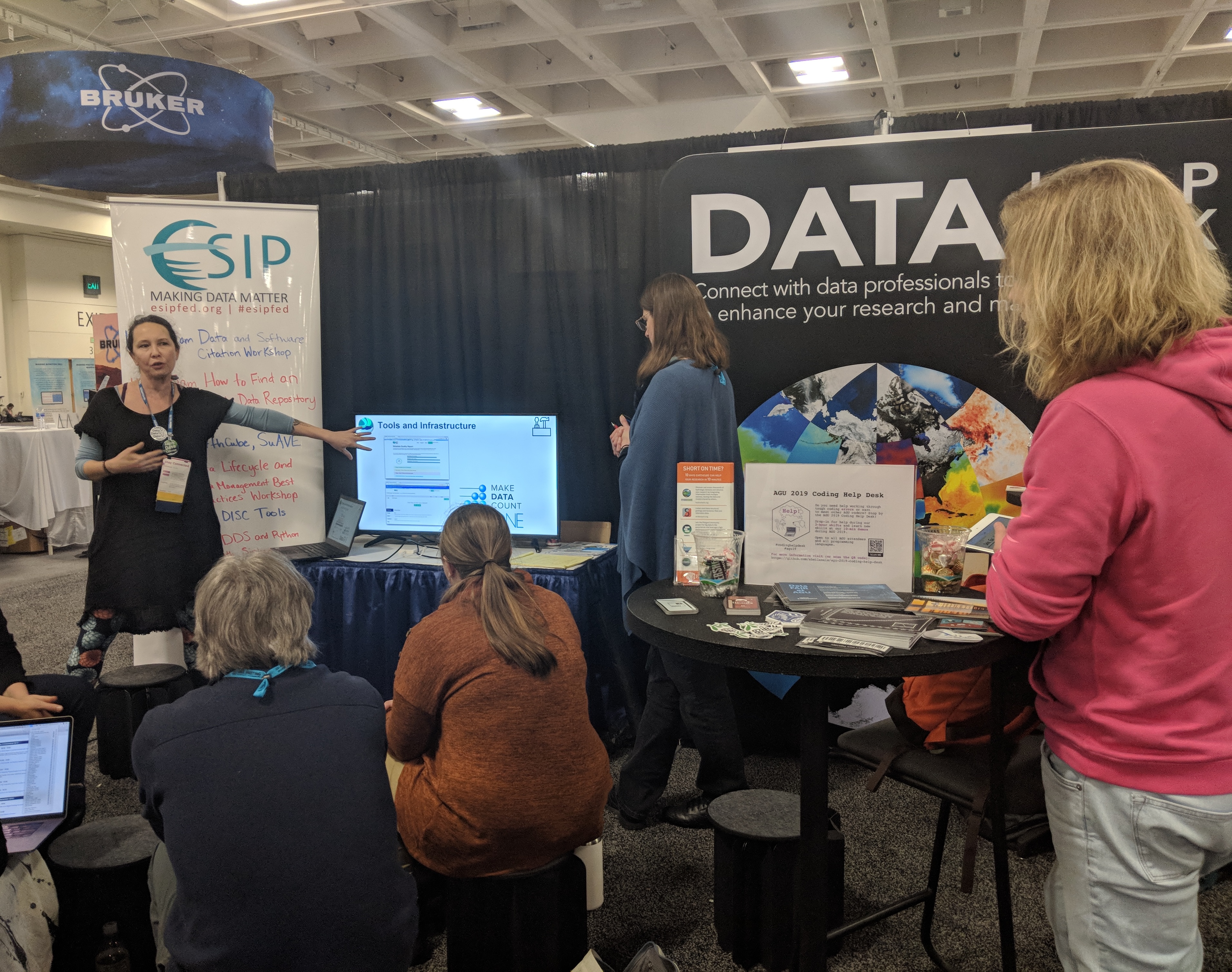Hosting a Data Help Desk

A data help desk is a service designed to assist researchers with their questions and needs related to research data management. It encompases the following:
- Purpose and Need: The main goal of a data help desk is to provide researchers with opportunities to engage with informatics experts to learn skills and techniques that will further their research and make their data and software open and FAIR (Findable, Accessible, Interoperable, and Reusable). Data help desks are needed because many researchers have little or no formal training in research data management and require assistance to meet expectations from publishers or funders regarding open and FAIR data and software.
- What it Accomplishes: A data help desk aims to help researchers with tasks such as finding or depositing data, understanding FAIR principles, creating data management plans, citing data and software, and addressing general data management questions.
- Who it Serves: The help desk is for researchers, including students, postdocs, early career professionals, and established scientists. It is understood that users may come with various knowledge levels, including those new to data management.
- Who Provides Help: The desk is staffed by expert volunteers from communities like Earth science informatics, who have experience in informatics and various scientific domains. These volunteers specialize in topics such as finding, sharing, analyzing, publishing, and citing data and software. They are people, not automated computer documentation.
- Format and Location: A data help desk can be a booth with a desk or a town hall open space format at a conference exhibit hall. They can be active for a short duration, like a conference, or potentially be ongoing as a year-round service.
- Interactions and Content: Volunteers interact directly with users, answering questions and demonstrating tools or resources. Common questions cover areas like data repositories, data management plans, FAIR principles, handling large datasets, and data citation. Volunteers are encouraged to listen actively, clarify questions, and share their science expertise to build trust. Answers may sometimes be brief, providing a lead rather than a complete solution. If a question cannot be answered immediately, it should be recorded for follow-up by organizers. Backchannel communication channels among experts, such as a Slack channel, are used to crowdsource answers or refer users.
- Volunteer Support: Volunteers are typically provided with guidelines and basic information on data management concepts to help them prepare. They often sign up for specific time slots, typically 1-2 hours. Volunteers may also contribute content like FAQs, recorded demos, or one-pagers.